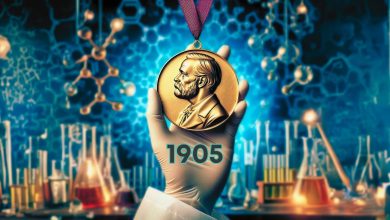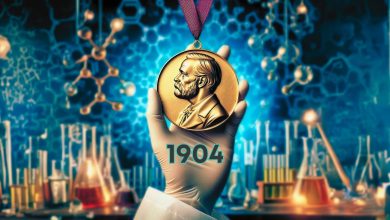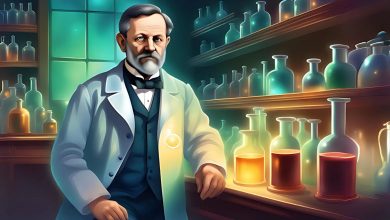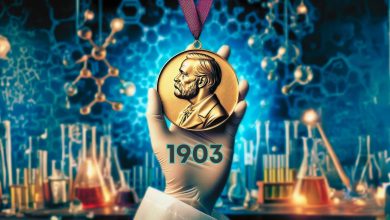
Let’s say we went on a world tour and went through many different time zones quickly. Our perceptions are confused, we do not know whether it is day or night or whether we are hungry. Or, we are in finals week, and we stay awake until the morning because we think we work more efficiently at night. These are, of course, our own choices, but if we choose to live excessively while ignoring our body’s urges, we will feel exhausted, confused, and possibly sick. This is because, like most other inhabitants of the earth, we have a special biological system that keeps our bodies in sync with the day and night cycles. This is our circadian rhythm, and unlike our alarm clock, it does not have a snooze button.

Circadian Rhythm or Biological Clock
Many biological processes (such as hunger, mood, stress, heart rhythm, and immunity) undergo regularly recurring quantitative and qualitative changes. The biological clock, also called the circadian rhythm, is the physical, mental, and behavioral changes that follow a roughly 24-hour cycle of our planet. Thanks to this natural timer, cells increase their function at certain times and decrease it at other times. In humans and other living things, the secretion of certain hormones and the regulation of body temperature occur under the control of the biological clock.
In addition to determining the daily rhythm of chemical events in the body, the biological clock also regulates monthly or seasonal changes. For example, it controls women’s menstrual bleeding every 28 days and determines when hibernating animals sleep or when migratory birds migrate to distant lands. In other words, the biological clock has a great effect on living things.

So, How Does This Clock Work?
When it comes to the biological clock, most of us may simply think of the day and night cycle, that is, with the effect of light and dark, that our body goes into a state of rest at night or is active during the day.
In the 18th century, astronomer Jean Jacques d’Ortous de Mairan observed mimosa flowers and discovered that their leaves open towards the sun during the day and close in the dark at night. But what would happen if we left the plant in the dark for a long time? Would it be permanently off? Mairan observed that the mimosa flower, which he put in a box that was out of the sun, opened its leaves at the same time in the morning and closed at the same time in the evening. As a result, he found that the opening and closing of the leaves were independent of sunlight. Because the leaves continued their rhythmic movements in the dark. The concept of the biological clock emerged with this small experiment on plants.
In the 1970s, American Physicist, Molecular Biologist, and Behavioral Geneticist Seymour Benzer and his student, Ronald Konopka, knew that there were genes controlling our circadian rhythm and wondered if it would be possible to isolate this gene using fruit flies. Knowing that flies come out of their pupa nests at dawn, Konopka collected and reared the flies that came out at inopportune times. They showed that the circadian clock of Konopka’s mutant flies was disrupted by a change (mutation) in a gene, and they called this gene the period gene [1]. But how might this gene affect the circadian rhythm?
Is Circadian Rhythm Linked to Our Genes?
Jeffrey C. Hall, Michael Rosbash, and Michael W. Young were awarded the 2017 Nobel Prize in Physiology or Medicine for their work explaining the inner workings of our biological clock [2]. Using the fruit flies, which Benzer and Konopka consider model organisms, as mentioned in the previous paragraph, they isolated a gene that controls the daily biological rhythm. They showed that this gene encodes a protein that accumulates in the cell overnight and then breaks down during the day. Thus, our internal clock adapts us to the many different phases we experience physiologically throughout the day. It regulates serious functions such as behavior, hormone levels, sleep, body temperature, and metabolism.
When the balance of the biological clock is disturbed, it can cause different problems. Research has shown that disrupting our natural rhythms places an extraordinary strain on the body and increases the risk of a number of serious diseases.
As we know, many drugs have time periods when they act on our body in the most appropriate way. To get the most effective benefit, it is very important to know what your body clock shows.

Receiving the Nobel Prize in Chemistry in 2015 for his research on DNA repair mechanisms, Prof. Dr. Aziz Sancar also had research on the relationship between the biological clock and cancer. He noticed that more effective results were obtained when chemotherapy was applied according to the biological clocks of the patients. His student, Assoc. Dr. Nuri Öztürk is still researching the effects of the destruction of biological clock genes in cells and how they affect cell death and cell motility, which are the basic steps in cancer [3]. As a result, biological rhythm disorders have been frequently associated with cancer biology in recent years. For example, in 2007, the International Agency for Research on Cancer announced that shift work involving circadian asynchrony may be carcinogenic [4].
The Connection of Our Sleeping and Waking Time to the Biological Clock
On the other hand, there is an important relationship between the biological clock and sleep. Many of us set an alarm to wake up early when starting work or school after a long vacation. After a few days or weeks, we may wake up a few minutes before the clock rings. In the evening, we almost always fall asleep at the same time. In short, there is a connection between sleep and the biological clock. Given that, sleep and the circadian timing system are the product of complex interactions between multiple brain regions, neurotransmitter systems, and regulatory hormones, it is very susceptible to disruption. Recent studies have shown that sleep and circadian rhythm disturbance (SCRD) is common in neurodegenerative and neuropsychiatric diseases where neurotransmitter pathways are disrupted. For example, SCRD has been reported in more than 80% of patients with depression or schizophrenia [5]. But the discomfort of feeling sleepy at inopportune times is just the tip of the iceberg. Disruption of sleep and circadian rhythms is also associated with a wide variety of interrelated pathologies such as poor wakefulness and memory, decreased mental and physical response times, decreased motivation, depression, insomnia, metabolic abnormalities, obesity, immune dysfunction, and even higher risk of cancer.

Sleep problems associated with the body clock are linked to a hormone called melatonin, which helps our bodies become tired and stay asleep. Light and dark affect how the body produces melatonin. The vast majority of melatonin is produced at night. The light we are exposed to throughout the day tells our body to produce less melatonin. If we are working in artificial light at night, our body may be producing less melatonin than it needs [6]. As a result, we cannot sleep well, and our circadian rhythm is disrupted. Jet lag, which can be summarized as the instability felt as a result of traveling to different time zones by air travel, is another example of this.
As a result, maintaining a regular sleep schedule allows our circadian rhythm to work well, increasing our performance during the day. Thus, we can prevent waking up tired and increasing the stress level, and even prevent diseases such as cancer.
This way, we can stay young!
References:
[1] Bargiello, T. A., Jackson, F. R., & Young, M. W. (1984). Restoration of circadian behavioral rhythms by gene transfer in Drosophila. Nature, 312(5996), 752-754. [2] Press release. (2022, Nov 26). Nobel Prize Outreach AB 2022. NobelPrize.org. https://www.nobelprize.org/prizes/medicine/2017/press-release/[3] Baykal, N. (2016, May 6). Biological Clock and Health. Bilimgenc. https://bilimgenc.tubitak.gov.tr/makale/biik-saat-ve-saglik
[4] Straif K, Baan R, Grosse Y, Secretan B, El Ghissassi F, Bouvard V et al. Carcinogenicity of shift-work, painting, and fire-fighting. Lancet Oncol. 2007;8(12):1065-6.
[5] Wulff K, Gatti S, Wettstein JG & Foster RG (2010). Sleep and circadian rhythm disruption in psychiatric and neurodegenerative disease. Nat Rev Neurosci11, 589–599.[6] Masson-Pévet, M. (2007). Melatonin in the circadian system. Journal of the Biological Society, 201 (1), 77-83.
Further Readings:
Cepelewicz, J. (2017, October 2). Nobel Prize Awarded for Biological Clock Discoveries. Quantamagazine. https://www.quantamagazine.org/nobel-prize-awarded-for-biological-clock-discoveries-20171002/
Imster, E. (2014, November 3). Cool facts about your biological clock. Earthsky. https://earthsky.org/human-world/cool-facts-about-your-biological-clock
Savvidis, Christos & Koutsilieris, Michael. (2012). Circadian Rhythm Disruption in Cancer Biology. Molecular medicine (Cambridge, Mass.), 18. Researchgate. https://www.researchgate.net/publication/229326396_Circadian_Rhythm_Disruption_in_Cancer_Biology
Sleep Health: 20 Facts About Your Biological Body Clock. (2018, November 13). Onhealth. https://www.onhealth.com/content/1/biological_clock_sleep_health_body_facts
Suni, E., Rehman, A. (2022, May 6). Sleep drive and your body clock. Sleep Foundation. https://www.sleepfoundation.org/circadian-rhythm/sleep-drive-and-your-body-clock
Would you like to support us?
- For more detailed information, you can check our “Support Us!” page!







